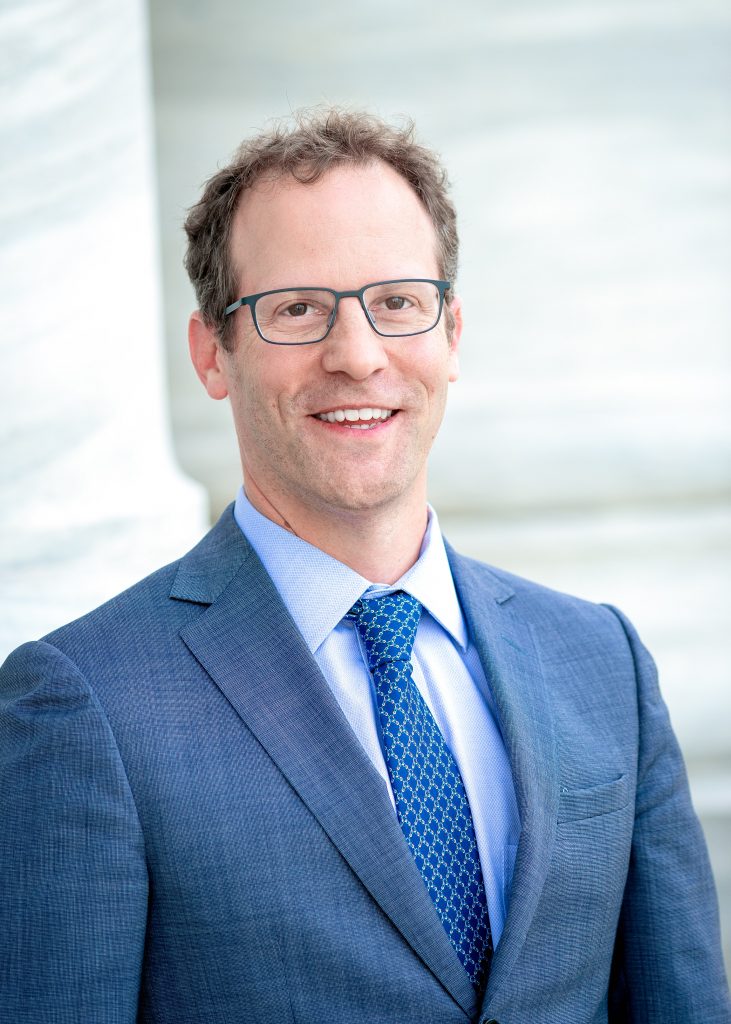Meet the Quality Talks Speaker: Brigham IT Chief Adam Landman, MD
March 22, 2021 · Matt Brock
NCQA caught up to Dr. Adam Landman as he prepared his Quality Talk. We wanted to find out what is at the top of his mind. What to expect. His reply? We should have known. Digital solutions for improving care. Post-Covid.
Landman is one of ten standout speakers lined up for Quality Talks 2021.
Virtual seats are still available.
Join us April 21.
Register now.
Adam Landman, MD, MS, MIS, MHS is Chief Information Officer at Brigham Health, Associate Professor of Emergency Medicine at Harvard Medical School, and an attending emergency physician at Brigham and Women’s Hospital.
 He is an expert in health information technology and digital health design, development, and implementation. In his current role, he is responsible for developing strategic IT initiatives, to evolve the next generation of information systems and digital health solutions across the Brigham Health enterprise, while maintaining a focus on safety, security, and excellence. Landman received his medical degree from Rutgers-Robert Wood Johnson Medical School and trained in Emergency Medicine at UCLA Medical Center. He was a Robert Wood Johnson Foundation Clinical Scholar at Yale University, where he also received his Masters of Health Sciences. He completed graduate degrees in Information Systems and Health Care Policy and Management at Carnegie Mellon University.
He is an expert in health information technology and digital health design, development, and implementation. In his current role, he is responsible for developing strategic IT initiatives, to evolve the next generation of information systems and digital health solutions across the Brigham Health enterprise, while maintaining a focus on safety, security, and excellence. Landman received his medical degree from Rutgers-Robert Wood Johnson Medical School and trained in Emergency Medicine at UCLA Medical Center. He was a Robert Wood Johnson Foundation Clinical Scholar at Yale University, where he also received his Masters of Health Sciences. He completed graduate degrees in Information Systems and Health Care Policy and Management at Carnegie Mellon University.
Q: Tell me a little bit about yourself. What is Adam Landman all about?
Dr. Landman: I’m an emergency physician and also the Chief Information Officer at Brigham Women’s Hospital in Boston. I still see patients. These days I don’t get to spend as much time with patients. I work in Virtual Urgent Care and then most of my time is spent in administrative and operational responsibilities. Kind of keeping the hospital running with all the IT systems.
Q: Virtual Urgent Care, that sounds new. I mean, kind of new, right?
Dr. Landman: Well, Virtual Care and Virtual Urgent Care have been around for a while. But I think now with COVID, we’ve seen a real acceleration in use of these services.
Q: I imagine that’s really helpful for at-risk folks who don’t want to go anywhere—people taking precautions,
Dr. Landman: We’ve seen that patients really love this, particularly during COVID time when they’re trying not to leave the house. But it really… For me, the primary function is a triage function. There are a few things that we can see over Virtual Care that we can just take care of, prescribing medication and the patient’s all set. We can also reassure patients of some things and then we can help get the patients who, if they do need to get come in, we can help get them to the appropriate site of care. And so in general, actually people have been, patients have been very pleased with the services that we’re providing.
Q: In some ways, with the Quality Talks audience, you’re going to be preaching to the choir in some cases, right? These folks are likely on board and believe there’s a digital future in the delivery of care. And of course, for NCQA, performance measurement. What do you expect to set your Talk apart?
Dr. Landman: There have been plenty of naysayers about digital technologies. We had a major experiment with COVID, where we didn’t have a choice. We had to use these technologies because if we wanted to continue to take care of patients, they weren’t coming into the office. We had to find other ways to care for them. We had to find other ways to allow visitors to see patients that were in the hospital. And we had to stand up all sorts of new programs to just care for patients with COVID that didn’t exist before.
Digital was at the core of all of that.
We just conducted this incredible experiment that essentially showed that healthcare didn’t completely end when we moved virtual. We were able to take care of patients virtually. Patients seemed to be pretty happy. Many clinicians, providers were happy using virtual tools. We also learned that it doesn’t work in some cases and that you absolutely still need in-person care. But I think we took a massive step forward.
That’s exciting to me. I think we have a real opportunity here to re-imagine care after COVID and apply a lot of the lessons learned, many of which are in the digital realm.








